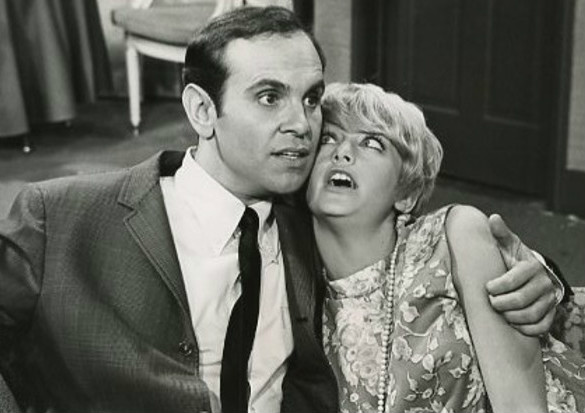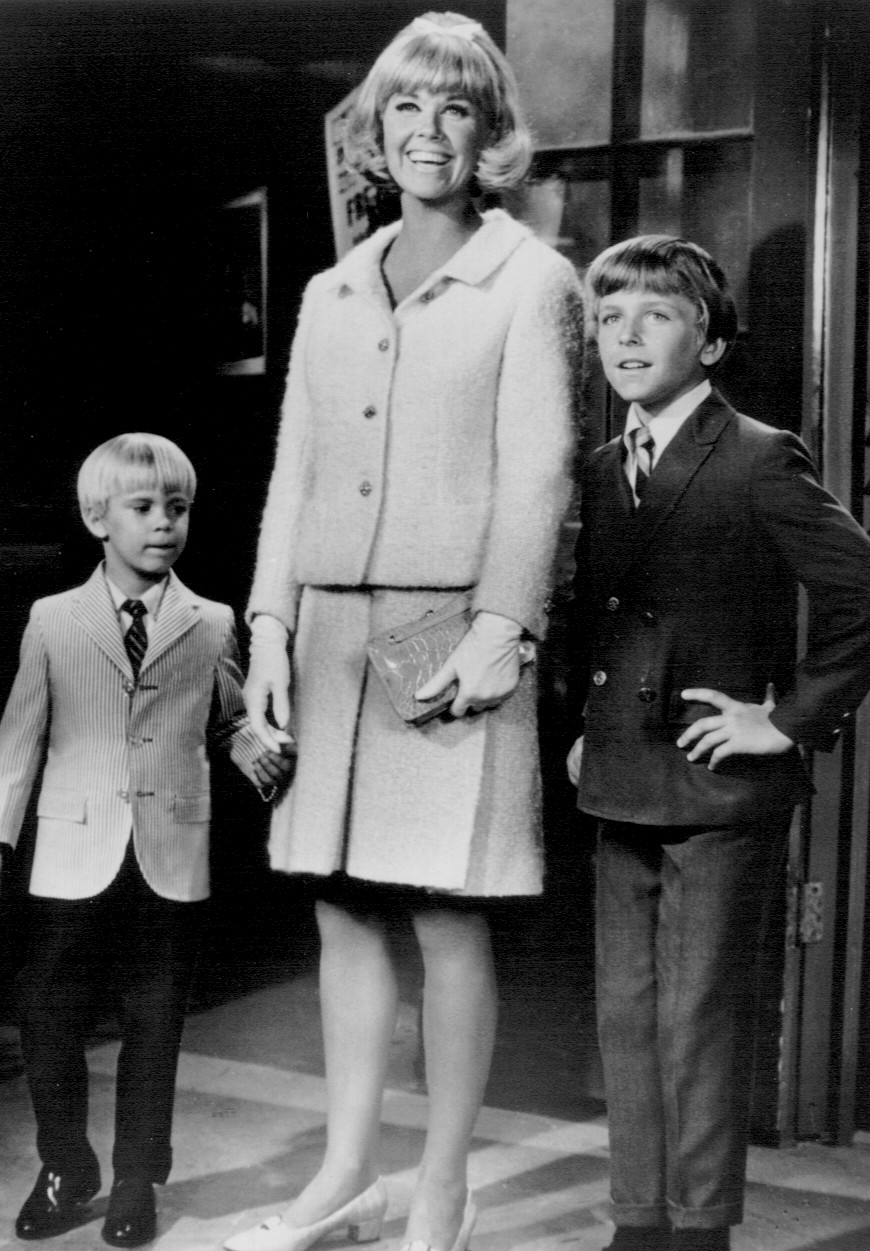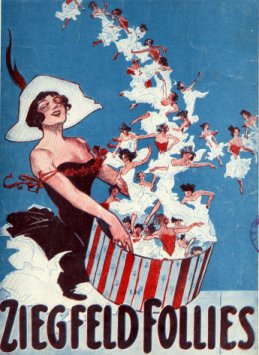|
Billy De Wolfe
William Andrew Jones (February 18, 1907 – March 5, 1974), better known as Billy De Wolfe, was an American character actor. He was active in films from the mid-1940s until his death in 1974. Early life and early stage career Born William Andrew Jones in the Wollaston neighborhood of Quincy, Massachusetts, De Wolfe was the son of a Welsh bookbinder who encouraged him to become a Baptist minister. Instead, Billy developed an interest in the theatre. He found work as an usher before becoming a dancer with the Jimmy O'Connor Band.UPI. "Vet hoofer, actor Billy De Wolfe dies," ''Pacific Stars & Stripes'' (March 8, 1974), page 3. It was at this point that he changed his last name initially to "De Wolf" (the e was added later), which was the last name of the manager of the Massachusetts theatre where he worked. In 1925, De Wolfe landed chorus boy spots in the Broadway musicals '' Artists and Models'' and '' The Cocoanuts''. He then went on to tour Europe with a dance team for most of ... [...More Info...] [...Related Items...] OR: [Wikipedia] [Google] [Baidu] |
Good Morning World (American TV Series)
''Good Morning World'' is an American sitcom broadcast on CBS during the 1967-68 American network television schedule, 1967–1968 season, originally sponsored by Procter & Gamble on Tuesday nights at 9:30pm Eastern time, ET. On January 7, 2017, reruns of the show began airing on the Antenna TV network. Synopsis ''Good Morning World'' starred Joby Baker and Ronnie Schell as Dave Lewis and Larry Clarke, morning drive time disc jockeys and hosts of the eponymous "Lewis and Clarke Show" on a small amplitude modulation, AM radio station in Los Angeles, California, Los Angeles. The two host the show under the supervision of station manager Roland B. Hutton Jr., portrayed by Billy De Wolfe in his usual character actor, character. Frequently appearing in the subplots was Julie Parrish as Lewis's wife Linda, as well as her aggressive best friend Sandy Kramer, played by Goldie Hawn in her first professional role. The series was created and produced by Carl Reiner, Sheldon Leonard, Bi ... [...More Info...] [...Related Items...] OR: [Wikipedia] [Google] [Baidu] |
The Perils Of Pauline (1947 Film)
''The Perils of Pauline'' is a 1947 American Technicolor musical comedy film directed by George Marshall and starring Betty Hutton, John Lund and William Demarest. It was produced and released by Paramount Pictures. Although named after the 1914 film serial of the same name, it is not a remake of it. Rather, it is a fictionalized account of the rise to fame of silent film actress Pearl White, who had been the star of the original serial. A broad satire of silent-film production, the film is a musical-comedy vehicle for Hutton, who stars as White. The original songs by Frank Loesser include the standard " I Wish I Didn't Love You So", which received an Academy Award nomination for Best Original Song. Paul Panzer, who played the villain in the 1914 '' Perils of Pauline'', has a very small part in this film, as do silent-comedy veterans Chester Conklin, Hank Mann, Snub Pollard, and James Finlayson. The film is in the public domain today; all public-domain video releases are ... [...More Info...] [...Related Items...] OR: [Wikipedia] [Google] [Baidu] |
The Queen & I (U
The Queen and I or Queen and I may refer to: * ''The Queen and I'' (novel), a 1992 novel by Sue Townsend * ''The Queen and I'' (2018 film), a British TV film comedy drama based on the novel of the same name * ''The Queen and I'' (2008 film), a documentary film about Iranian Empress Farah Pahlavi * "The Queen and I" (song), a single by Gym Class Heroes from their album ''As Cruel as School Children'' * ''The Queen & I'' (American TV series), a 1969 sitcom starring Larry Storch and Billy De Wolfe * "The Queen and I (99 BPM)", a song by The Justified Ancients of Mu Mu, from the album '' 1987 (What the Fuck Is Going On?)'' * ''Queen and I'' (South Korean TV series), a 2012 television series {{DEFAULTSORT:Queen and I, The ... [...More Info...] [...Related Items...] OR: [Wikipedia] [Google] [Baidu] |
Larry Storch
Lawrence Samuel Storch (January 8, 1923 – July 8, 2022) was an American actor and comedian known for his comic television roles, including voice-over work for cartoon shows such as Mr. Whoopee on '' Tennessee Tuxedo and His Tales'' and his live-action role of the bumbling Corporal Randolph Agarn on '' F Troop'' that won a nomination for Emmy Award in 1967. Early life Lawrence Samuel Storch was born in New York City on January 8, 1923, the son of Alfred Storch, a cabdriver and broker, and his wife, Sally Kupperman Storch, a telephone operator, jewelry-store owner and rooming-house operator. ''The Washington Post'' reported that he was born in the Bronx, whereas ''The New York Times'' reported that he was born in Manhattan and ''The Wall Street Journal'' reported that he was born on the Upper West Side. His parents were observant Jews. He attended DeWitt Clinton High School in the Bronx with Don Adams, who remained his lifelong friend. Storch said that, because of hard times in ... [...More Info...] [...Related Items...] OR: [Wikipedia] [Google] [Baidu] |
The Doris Day Show
''The Doris Day Show'' is an American sitcom which was originally broadcast on CBS from September 1968 until March 1973, remaining on the air for five seasons and 128 episodes. The series is remembered for its multiple format and cast changes over the course of its five-year run. The show is also notable for Day's statement, in her autobiography ''Doris Day: Her Own Story'' (1975), that her husband Martin Melcher had signed her to do the series without her knowledge, a fact she only discovered when Melcher died of heart disease on April 20, 1968. (He also received credit on the series as "executive producer" during its initial season.) Series run Season 1 (1968–1969) Day portrays Doris Martin, a widowed mother of young sons Billy and Toby (Philip Brown (actor), Philip Brown and Todd Starke). As the series begins, she has brought her boys home to her father's rural ranch in Mill Valley, California, Mill Valley, north of San Francisco, California, after living in New ... [...More Info...] [...Related Items...] OR: [Wikipedia] [Google] [Baidu] |
That Girl Scene 1969
''That'' is an English language word used for several grammatical purposes. These include use as an adjective, conjunction, pronoun, adverb and intensifier; it has distance from the speaker, as opposed to words like ''this''. The word did not originally exist in Old English, and its concept was represented by . Once it came into being, it was spelt as (among others, such as ), taking the role of the modern ''that''. It also took on the role of the modern word ''what'', though this has since changed, and ''that'' has recently replaced some usage of the modern ''which''. Pronunciation of the word varies according to its role within a sentence, with a strong form, and a weak form, . Modern usage The word ''that'' serves several grammatical purposes. Owing to its wide versatility in usage, the writer Joseph Addison named it "that jacksprat" in 1771, and gave this example of a grammatically correct sentence: "That that I say is this: that that that that gentleman has advanced, ... [...More Info...] [...Related Items...] OR: [Wikipedia] [Google] [Baidu] |
Ziegfeld Follies
The ''Ziegfeld Follies'' were a series of elaborate theatrical revue productions on Broadway in New York City from 1907 to 1931, with renewals in 1934, 1936, 1943, and 1957. They became a radio program in 1932 and 1936 as '' The Ziegfeld Follies of the Air''. Founding and history Inspired by the Folies Bergère of Paris, the Ziegfeld Follies were conceived and mounted by Florenz Ziegfeld Jr., reportedly at the suggestion of his then-wife, the actress and singer Anna Held. The shows' producers were turn-of-the-twentieth-century producing titans Klaw and Erlanger. The Follies were a series of lavish revues, something between later Broadway shows and the more elaborate high-class vaudeville and variety show. The first follies, '' The Follies of 1907'', was produced that year at the '' Jardin de Paris'' roof theatre. During the Follies era, many of the top entertainers, including W. C. Fields, Eddie Cantor, Josephine Baker, Fanny Brice, Ann Pennington, Bert Williams, Ev ... [...More Info...] [...Related Items...] OR: [Wikipedia] [Google] [Baidu] |
John Murray Anderson's Almanac
''John Murray Anderson's Almanac'' is a musical revue, featuring the music of the songwriting team of Richard Adler and Jerry Ross, as well as other composers. It was conceived by John Murray Anderson. An earlier version of the show had been produced in 1929 with the title '' Murray Anderson's Almanac''. The earlier production included Henry Sullivan for composing the music and Noël Coward as part of the script writing team. Sullivan would go on to write music for the 1953 production mentioned here. The full title for the show was John Murray Anderson's Almanac: A Musical Harlequinade. Productions ''John Murray Anderson's Almanac'' began with a tryout at the Shubert Theatre in Boston from November 5, 1953 to December 5, 1953. The production opened on Broadway on December 10, 1953, at the Imperial Theatre, New York City, and closed on June 26, 1954, after 229 performances. The revue was conceived and staged by John Murray Anderson, with sketches directed by Cyril R ... [...More Info...] [...Related Items...] OR: [Wikipedia] [Google] [Baidu] |
Lullaby Of Broadway (film)
''Lullaby of Broadway'' is a 1951 American musical romantic comedy film released by Warner Bros. starring Doris Day and Gene Nelson, and directed by David Butler. Gladys George, S.Z. Sakall, Billy De Wolfe, Florence Bates, and Anne Triola appear in support. Songs from the film were released in an album of the same name. Plot Melinda Howard is an entertainer traveling from England to pay a surprise visit to her mother, Broadway singer Jessica Howard, who lives in New York City. Melinda believes that her mother lives in a mansion, however, Jessica's alcoholism has reduced her to singing in a Greenwich Village saloon, and the mansion actually belongs to Adolph Hubbell and his wife. The Hubbells' butler, Lefty Mack, and his fiancée, Gloria Davis, the maid, are a down-on-their luck vaudeville team and are good friends of Jessica and have been forwarding her letters to Melinda. Lefty pretends that Jessica has rented the house to the Hubbells while she is on tour, and, when a ... [...More Info...] [...Related Items...] OR: [Wikipedia] [Google] [Baidu] |
Tea For Two (film)
''Tea for Two'' is a 1950 American musical romantic comedy film starring Doris Day and Gordon MacRae, and directed by David Butler. The screenplay by Harry Clork was inspired by the 1925 stage musical '' No, No, Nanette'', although the plot was changed considerably from the original book by Otto Harbach and Frank Mandel; and the score by Harbach, Irving Caesar, and Vincent Youmans was augmented with songs by other composers. Plot Uncle Max ( S. Z. Sakall) expresses displeasure to his grandniece and grandnephew, who are making fun of their parents' outdated fashions, and begins telling the story of Nanette Carter ( Doris Day), a Westchester County, New York socialite with show business aspirations. In a flashback to the Roaring Twenties, she offers to invest $25,000 in a Broadway show if her boyfriend, producer Larry Blair ( Billy De Wolfe), casts her in the starring role. What she doesn't realize is that Larry is two-timing her with ingenue Beatrice Darcy ( Patric ... [...More Info...] [...Related Items...] OR: [Wikipedia] [Google] [Baidu] |
Musical Film
Musical film is a film genre in which songs by the Character (arts), characters are interwoven into the narrative, sometimes accompanied by dancing. The songs usually advance the plot or develop the film's characters, but in some cases, they serve merely as breaks in the storyline, often as elaborate "production numbers". The musical film was a natural development of the musical theater, stage musical after the emergence of sound film technology. Typically, the biggest difference between film and stage musicals is the use of lavish background scenery and locations that would be impractical in a theater. Musical films characteristically contain elements reminiscent of theater; performers often treat their song and dance numbers as if a live audience were watching. In a sense, the viewer becomes the diegesis, diegetic audience, as the performer looks directly into the camera and performs to it. With the Sound film, advent of sound in the late 1920s, musicals gained popularity with ... [...More Info...] [...Related Items...] OR: [Wikipedia] [Google] [Baidu] |
Doris Day
Doris Day (born Doris Mary Kappelhoff; April 3, 1922 – May 13, 2019) was an American actress and singer. She began her career as a big band singer in 1937, achieving commercial success in 1945 with two No. 1 recordings, "Sentimental Journey (song), Sentimental Journey" and "My Dreams Are Getting Better All the Time" with Les Brown (bandleader), Les Brown and His Band of Renown. She left Brown to embark on a solo career and recorded more than 650 songs from 1947 to 1967. Day was one of the leading Cinema of the United States, Hollywood film stars of the 1950s and 1960s. Her film career began with ''Romance on the High Seas'' (1948). She starred in films of many genres, including musicals, comedies, dramas and thrillers. She played the title role in ''Calamity Jane (film), Calamity Jane'' (1953) and starred in Alfred Hitchcock's ''The Man Who Knew Too Much (1956 film), The Man Who Knew Too Much'' (1956) with James Stewart. She co-starred with Rock Hudson in three successful com ... [...More Info...] [...Related Items...] OR: [Wikipedia] [Google] [Baidu] |








